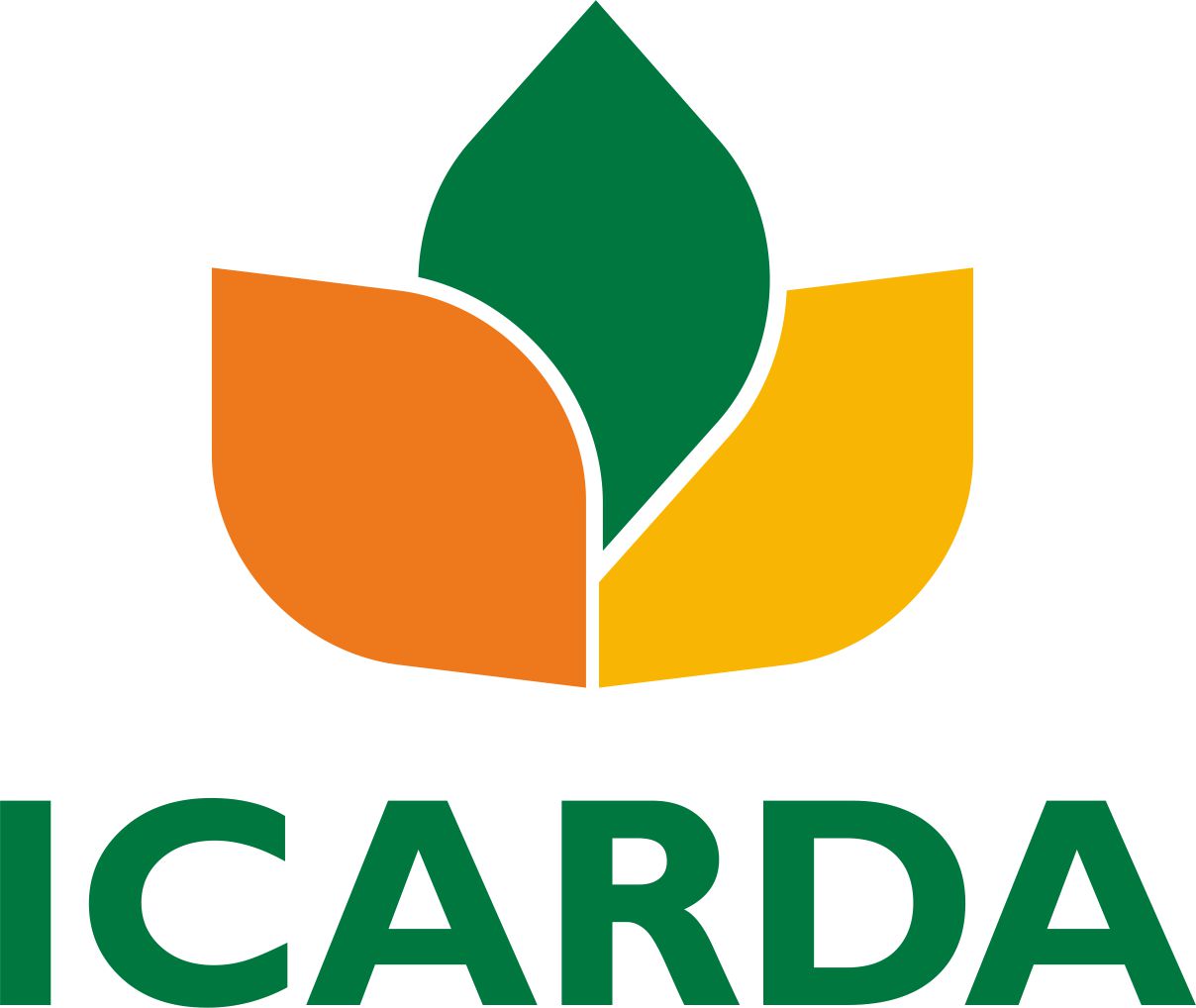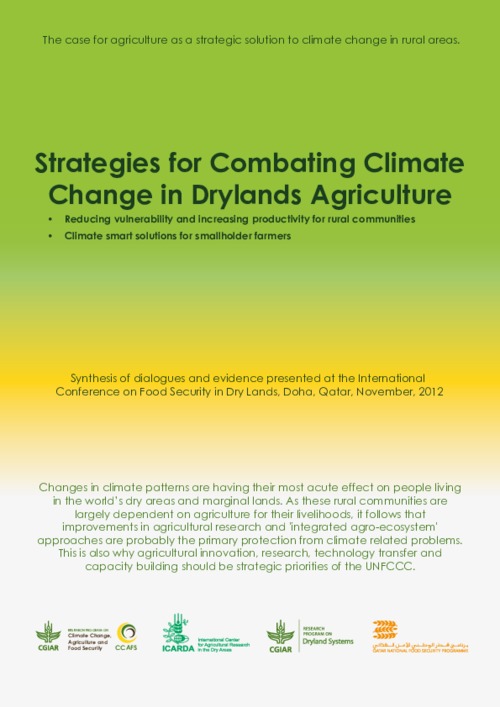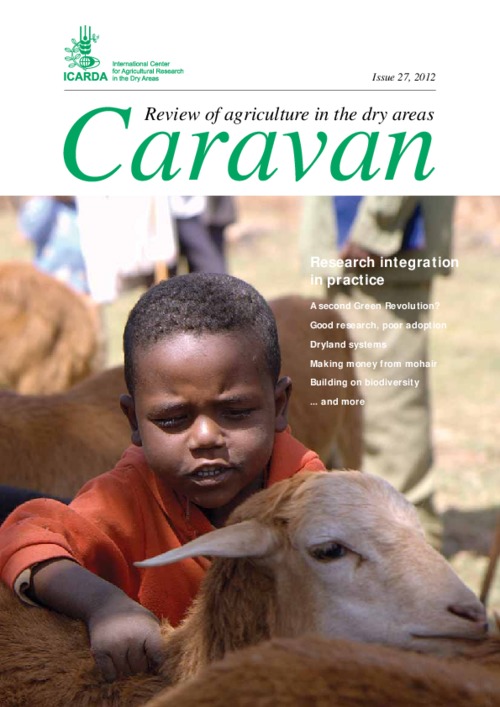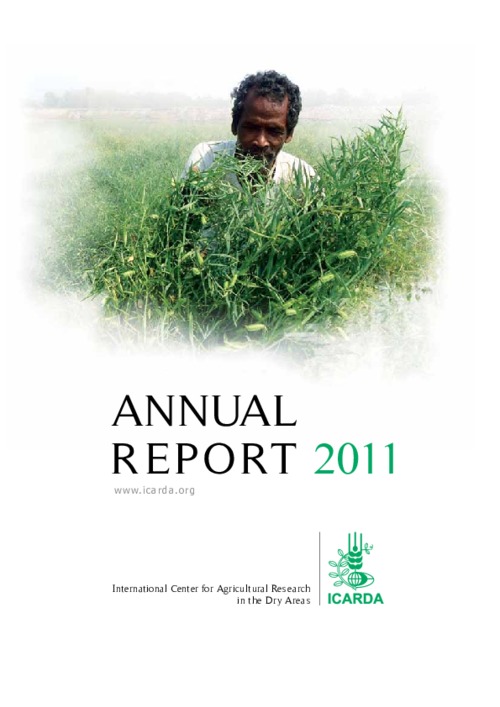Location
The International Center for Agricultural Research in the Dry Areas (ICARDA) was established in 1977. It is one of 15 such centers supported by the CGIAR. ICARDA’s founding mandate to promote agricultural development in the dry areas of developing countries remains highly relevant today.
ICARDA works with a tight focus on the problem-solving needs of resource-poor farmers, achieving this through the in-field delivery of its research outputs. Although global food production has increased by 20 per cent in the past decade, food insecurity and poverty remain widespread, while the natural resource base continues to decline.
International research centers such as ICARDA, which have helped drive previous improvements, continue to deliver new technologies to support sustainable growth in agriculture, and crucially, to work with a wide range of partners to accelerate the dissemination of these technologies.
ICARDA’s biggest strength is its staff – 600 highly skilled men and women from 32 countries. Our research and training activities cover crop improvement, water and land management, integrated crop-livestock-rangeland management, and climate change adaptation.
Other interventions include:
- Water harvesting - supplemental irrigation and water-saving irrigation techniques
- Conservation agriculture methods to reduce production costs and improve sustainability
- Diversification of production systems to high-value crops – horticulture, herbal and medicinal plants
- Integrated crop/rangeland/livestock production systems including non-traditional sources of livestock feed
- Empowerment of rural women – support and training for value-added products.
The ICARDA genebank holds over 135,000 accessions from over 110 countries: traditional varieties, improved germplasm, and a unique set of wild crop relatives. These include wheat, barley, oats and other cereals; food legumes such as faba bean, chickpea, lentil and field pea; forage crops, rangeland plants, and wild relatives of each of these species.
ICARDA’s research portfolio is part of a long-term strategic plan covering 2007 to 2016, focused on improving productivity, incomes and livelihoods among resource-poor households.
The strategy combines continuity with change – addressing current problems while expanding the focus to emerging challenges such as climate change and desertification.
We work closely with national agricultural research systems and government ministries. Over the years the Center has built a network of strong partnerships with national, regional and international institutions, universities, non-governmental organizations and ministries in the developing world and in industrialized countries with advanced research institutes.
THE ‘DRY AREAS’
Research and training activities cover the non-tropical dry areas globally, using West Asia, North Africa, Central Asia and the Caucasus as research platforms to develop, test, and scale-out new innovations and policy options.
Dry areas cover 41 per cent of the world’s land area and are home to one-third of the global population. About 16 per cent of this population lives in chronic poverty, particularly in marginal rainfed areas. The dry areas are challenged by rapid population growth, frequent droughts, high climatic variability, land degradation and desertification, and widespread poverty. The complex of relationships between these challenges has created a "Poverty Trap."
Members:
Resources
Displaying 336 - 340 of 431Strategies for Combating Climate Change in Drylands Agriculture
Synthesis of dialogues and evidence presented at the International Conference on Food Security in Dry Lands, Doha, Qatar, November, 2012
Challenges in the Dryland Agricultural Production Systems of South Asia: Research Priorities and Strategies
Dryland (arid and semi-arid) ecosystems occupy more than 41% of global land area and are home to 2.5 billion people. More than 50% of South Asia’s dryland ecosystems are located in India. Drylands contribute about 40% of the total food grain production and support two thirds of livestock population. Despite these important roles, agricultural production systems in the drylands are facing numerous challenges that threaten their resilience and future sustainability. This paper demonstrates some of the challenges and draws implications for priorities research and strategies.
A Participatory GIS Approach for Assessing Land Suitability for Rainwater Harvesting in an Arid Rangeland Environment
The dry rangelands of West Asia and North Africa are fragile and severely degraded due to low rainfall and mismanagement of natural resources. Rainwater harvesting (RWH) interventions are used to increase soil moisture content, vegetation cover, and productivity. However, adoption of rainwater harvesting by communities is slow. To understand adoption constraints and to develop options for sustainable integration of rainwater harvesting, a benchmark watershed was established in the dry rangelands of Jordan.
Caravan 27: Research integration in practice
This issue of Caravan describes the new program, and some of the research innovations it will build on. The issue begins with two ‘opinion pieces’ by scientists from partner organizations in the CRP. They share lessons learnt from past successes (and failures), and ideas that could be applied to dryland
ICARDA Annual Report 2011
Poverty, food insecurity, natural resource degradation and climate change are global challenges; but they impact most severely on rural communities in dry areas. Addressing these challenges requires a combination of good science, integrated research-for-development approaches, and effective partnerships. As this report illustrates, all three elements are in place, resulting in new technologies and tangible benefits in more than 40 countries.







